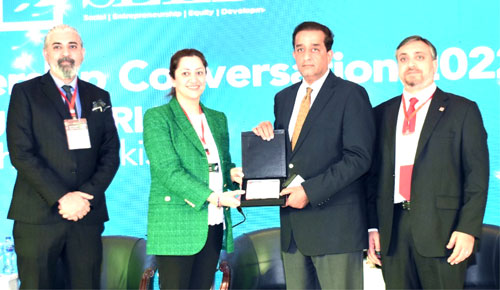Special Assistant to Prime Minister on Climate Change Malik Amin Aslam has said at a time when the global community is faced with climate crisis, tapping protentional of leadership conversation is key to sustainable production and consumption lifestyle for achieving environmental sustainability.
He highlighted that soaring climate-altering carbon emissions in rich nations over recent decades continue to exacerbate the situation of untamed climate crisis, leading to devastating impacts on socio-economic sectors, particularly water, agriculture, energy and health sectors. “For this boosting concept of leadership conversation roles regarding environmental sustainability and climate action is key.”
“However, rich nations need to show robust climate leadership role through enhanced conversation on the climate issues, so as to protect the global community from fallouts of the climate crisis through evidence-based environmental conservation and protection measures,” the PM’s aide stressed while addressing a high-level Pakistan Leadership Conversation -2022 event.
The event was organised at a local hotel in partnership with the climate change ministry by the Association of Chartered Certified Accountants, a global professional accounting body offering the Chartered Certified Accountant qualification worldwide.
He informed the participants from top key corporate and government sectors that the Prime Minister Imran Khan’s government has already launched efforts for boosting climate agenda through conversation at various forums and climate leadership role through various world-acclaimed green initiatives as a part of global climate action direly needed to protect lives and livelihoods of the people from adverse impacts of the climate crisis, particularly those living in climate-vulnerable areas. “To plug the climate action gaps in particularly our part of the world, which is extremely vulnerable climate change impacts, we need to produce leaders who converse out climate solutions by introducing courses for managers in various socio-economic sectors to promote environmental conversation concepts at their organizational levels.”










